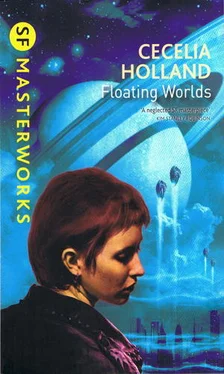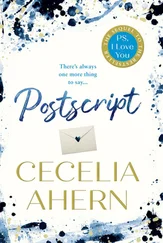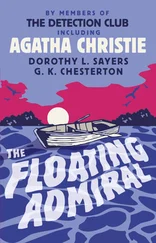“It’s getting worse. Take us back.”
She changed places with him and drove them back to New Haven.
The wire was sticky. She laid the belt across the top of the chest of drawers, in front of the mirror. In it she could see Saba still asleep in the bed behind her. The windows were heavily shaded. The wire was invisible in this light. She pressed it under the rolled edge of the buckle.
She went out to walk in the wood and got lost. Dark came. She found the stream and followed it through thick trees and brush, but it seemed to take her nowhere familiar. Thrashing her way through a thicket she came up against three strands of wire. She stopped, breathing hard. Ahead of her lay an open field, pale blue in the domelight, that sloped up on her right into an arm of the birch wood. The stream shone through the trees below her. In the distance was a group of buildings she recognized: Halstead’s. Relieved, she climbed through the wire and crossed the field toward the roadhouse.
Both the Committee cars were parked on the roof. She went in the ground door. Although it was a weekend night, the long L-shaped room was half-empty. Farmers took no days off. Kasuk sat at a front table playing Go with an old man in bib overalls. Two or three other Styths drank among the dozen people at the bar. She went over to watch Kasuk play, but just as she reached the table the old man stood up.
“I quit. I know when I’m beaten.” He wore no shirt. His shoulders ended in knobs, his beard hung in thick yellow twists like yarn. “What will it be?”
“Another beer,” Kasuk said. He saw Paula and got to his feet, eager. “Hello. Will you play?”
The old man went to the bar. She shook her head. “No, I want to go home. Did you come down here alone?”
“My uncle is here someplace.” He scanned the room. “So is my brother. I wonder where they went.”
Paula was picking burrs and foxtails out of her clothes and her hair. “Well, drive me home, and then you can bring the car back.”
“My uncle has the key.”
The old man returned with three liter steins of beer. Paula tried to pay him for hers but he refused the money. They sat at the wooden table drinking while Kasuk swept the Go pebbles into the box and shook them through the sorting screen.
“Play with me,” he said to her.
“I’m tired. I’ve been out lost in the wood for five hours.” She licked beer foam off her upper lip. “Where is Tanuojin?”
“Back at the house.”
She raised the stein and drank a long swallow of the beer. Kasuk folded the grid. Her curiosity was sparked. Kasuk was telling her a lie. Tanuojin would never allow his sheltered younger son to go off to a drinking dock; therefore Tanuojin was gone.
Kasuk was staring over her head toward the door, and she twisted around on the bench to see. A girl in a brick-colored jacket slipped into the half-lit room and crossed it to the bar. Kasuk said, “That’s the woman my uncle was talking to.”
The old man put his stein down. “One more game, sonny?”
“Sure.”
Paula gulped the rest of her beer. “If Saba comes in again, hold him for me.” She went out the front door to the yard, spread with the pale blue light. Around the three buildings of the Halstead complex the grass was clipped short, but a hundred feet away the high straw sprang up, crackling dry. She walked slowly out past the barn and the guesthouse. The wind was cold. On the high ground behind the bar, she came on Saba, Junna, and two girls sitting on the ground passing a little bone pipe around.
“I thought I saw you go in,” Saba said. “Where have you been?” He was not wearing the belt with the wire; he was not even wearing a shirt.
“I forgot that it gets dark here.” She sat down beside him. The girls were much nearer Junna’s age than Saba’s. One handed her the pipe. “Which car did you bring?” Relieved, she saw the rest of his clothes on the ground beside him.
“The three-seat.”
“Give me the keys,” she said, “so Kasuk can drive me home.” She sucked on the pipe. The fire was out. She passed the pipe to Junna.
“I’ll take you.” Saba got up, stooping for his shirt and belt.
One girl had struck a match. Junna bent to light the hashish. His heavy hair hung over his shoulders. The two girls were watching him, solemn. Their youth made them all similar. Saba went off through the high grass, slinging his belt around his waist. Paula ran to catch up with him.
“Uncle Saba,” Junna shouted, and Saba wheeled; he kept walking, backward now. Junna cried, “Will you come get us?”
“Walk,” Saba shouted.
“Hey!”
Saba laughed. He turned front again. Paula jammed her hands in her pockets. She wished she knew where Tanuojin was. There was a ladder up the side of the tavern, and she went around the corner of the building to it.
“I take it you feel better?”
He climbed up the ladder after her to the parking lot on the roof. “I feel top.”
The yellow Dutch car was parked in the center of the roof. The door was locked. She watched him try the keys; he was in a very high mood, and she guessed he had smoked a lot of the bhang.
“Where is Tanuojin, while you’re out educating his sucklings?”
“He took one of the other cars out.”
It was a bad lie, since she could see the only other car available to him from where she stood. He swung the door up and she slid across the three seats to the far side. Saba got in next to her, behind the steering grips.
“You never told me your father killed himself.”
“No, I never did.”
“How did he do it?”
Slumped in the seat, she put her head back and looked out the clear roof. He started the car. They rose in a looping spiral into the air.
“Are you cold?” he said.
“I’m hungry.”
“Why did your father kill himself?”
“Oh, Christ. He left me a letter. I kept it for years, I finally burned it. He said he was afraid of losing his mind. He was afraid of being helpless. He left the dome, and the pollution killed him. I wish Tanuojin had kept quiet about it. I didn’t know he knew.”
“How old were you?”
“Junna’s age.”
The car was settling down over the tops of trees. She sat up, thinking about what she could have to eat. She put her father and his flight out of her mind easily; she had been doing it for years. He landed the car and they went into the darkened kitchen, smelling of roast pork.
“Give me something to eat.” He sat down at the table and propped his feet on the other chair. “It must have been hard for you, what your father did.”
She opened the cold drawer and took out a sack of milk, a bowl of apples, and a cheese. “Don’t be fatuous.”
“I’m making a point.”
She put the food down on the table between them. He straightened to reach the apples, taking his feet off the chair, and she sat. The room was too dark for her to see his face. He said, “I’ve been thinking about this all watch. He was an intelligent man, your father, you’ve told me that, but being intelligent didn’t save him, or you. That’s what drove him crazy.”
“He wasn’t really crazy.”
He drank milk. The domelight threw an elongated reproduction of the window onto the floor.
“There’s only one thing in life,” he said. “To do whatever comes to you as well as you can. That’s what honor is, the perfect image, the ideal life. Anarchists have no sense of honor. That’s why they can kill themselves like that.”
She ate cheese. “Your father was murdered.”
“He didn’t desert me. Your father abandoned you.”
The hallway door creaked, and Leno came in, his feet scraping on the floor. He and Saba made half-worded noises at each other. Paula reached for the sack of milk. Everybody with any intelligence sometimes was afraid of going crazy. Leno took another piece of cheese and a loaf of bread and went out the back door into the yard.
Читать дальше











